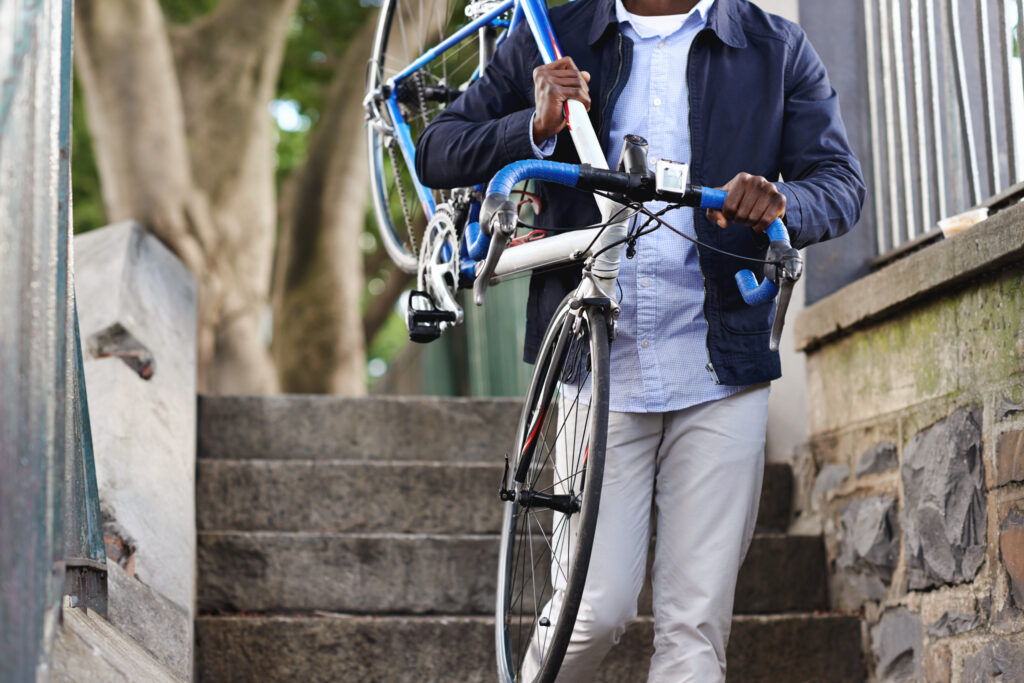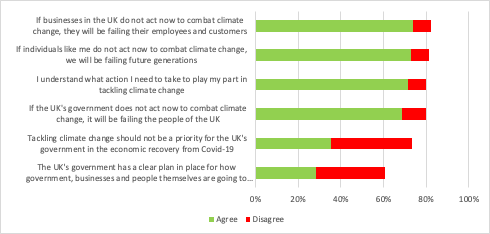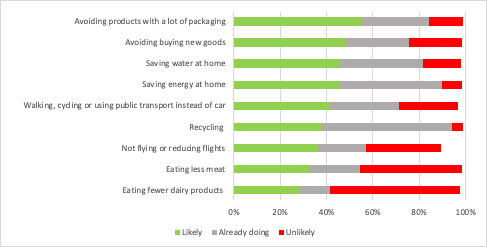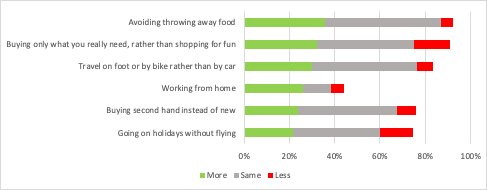
In time for Earth Day 2021 – a critical year for international environmental policy, with major deals in progress on climate, biodiversity, food and oceans – a new poll shows strong support from the UK public for climate action by the government, business and individuals.
Consistent with recent research by CAST, new polling by Ipsos MORI finds that the UK public feels a strong moral imperative to take action themselves on climate change. Almost three-quarters (73%) agree that ‘if individuals like me do not act now to combat climate change, we will be failing future generations’.
Most also feel this responsibility is shared by businesses and government. Three-quarters (74%) agree that ‘if businesses in the UK do not act now to combat climate change, they will be failing their employees and customers’ and nearly as many (69%) agree that ‘if the UK government does not act now to combat climate change, it will be failing the people of the UK’. This sense of shared responsibility has also been demonstrated in last year’s Climate Assembly UK and in other polls. The CAST 2020 survey showed that when people had to pick the one actor who they think is mainly responsible for reducing UK’s emissions, 31% chose the government and 29% businesses and industry (19% individuals and their families, 13% the international community).

On the other hand, in the year that the UK hosts the vital UN climate change talks, COP26, only 28% agree that the UK’s government has a clear plan in place for how government, businesses and the public are going to work together to tackle climate change. This is even lower than an average across 30 countries of 31%.
Still, most (71%) say they ‘understand what action I need to take to play my part in tackling climate change’, and a majority plan to limit their contribution to climate change. Amongst the actions most likely to be taken in the coming year are: avoiding packaging (55%) and buying fewer new things (49%), while a majority also (56%) say they are already recycling as much as they can. This focus on waste has been observed in previous studies, despite recycling and reducing packaging being less effective in tackling climate change than changing food and travel habits (see Wynes, 2017).
But even for these more impactful behaviours, the survey results are encouraging. Four in ten (42%) say they are likely to cut down on car use in order to reduce their contribution to climate change, while a further three in ten say they are already avoiding car use as much as possible. Over one-third (36%) also plan to cut down on or avoid flying, while a further 21% already avoid flying. Similar proportions plan to eat less meat (32%) or already avoid meat (22%). In line with our recent surveys, we find cutting down on dairy products is the least popular action – 56% say they are unlikely to do this, while fewer plan to do this (28%) or are already doing this (13%).

The COVID-19 pandemic has changed the public’s habits in many ways that are good for the climate – most notably reducing travel, consumption, and food waste. Consistent with these changes, many are planning to do more to cut food waste (36%), buy only essentials (32%), travel on foot or by bike (30%) and work from home (26%) after COVID-19 restrictions are lifted than before the pandemic. This survey further shows that about half of respondents aged 50 – 74 years think that their travel and buying behaviours will stay the same as before the pandemic, while only around a third of younger people hold this view (31% – 38%).
Indeed, the survey findings indicate greater willingness to tackle climate change amongst young people than older age groups. Across almost all actions, the under-35s say they are more likely than other groups to change their behaviours. For example, 38% of under-35s say they are likely to avoid dairy in the coming year, compared to 22% of over 50s; 40% of under-35s also say they will avoid flying compared to 32% of over-50s. This reflects greater youth concern with climate change, and changing dietary and consumption patterns amongst young people noted elsewhere.
With regards to changes to how much people work from home, only 12% expect things to go back to how it was before the COVID-19 pandemic (51% not applicable). This is encouraging, but as we have discussed previously, these good intentions need supporting policies and infrastructure to lock in emerging habits.

This is particularly the case as many face harsh economic realities in light of the pandemic. Indeed, opinion is divided on a green recovery from COVID-19: 35% agree that tackling climate change should not be a priority for the UK’s government in the economic recovery from COVID-19; while 38% agree. This is lower support shown for a green recovery than in previous polling and at the Climate Assembly UK – perhaps due to the negative question wording used here, or because the hard economic realities of COVID-19 are biting harder than last year.
Read more: Earth Day 2021: Only 3 in 10 Britons think the Government has a clear plan to tackle climate change


